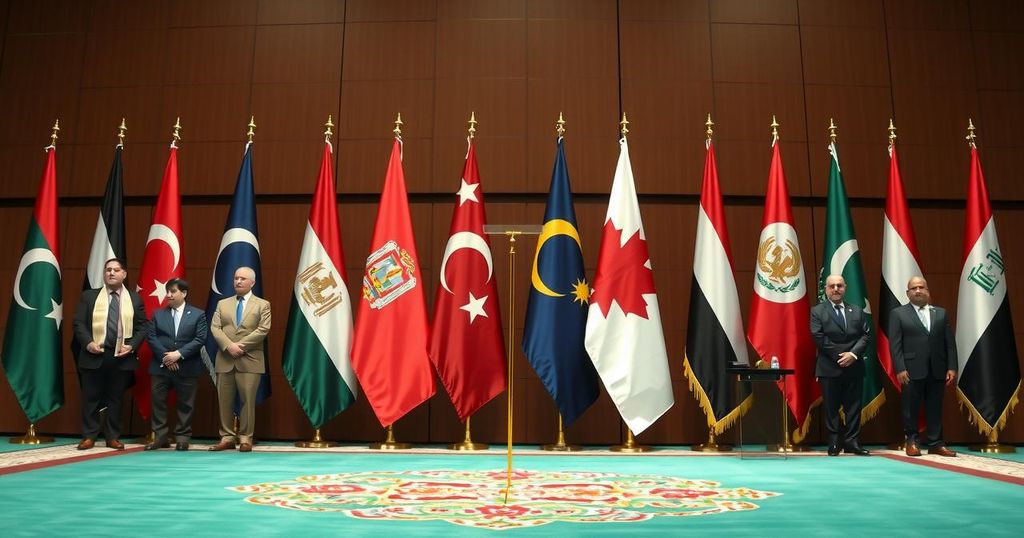Egypt Hosts D-8 Summit Highlighting Turkey and Iran’s Growing Influence

Egypt convened a D-8 summit, emphasizing the growing influence of Turkey and Iran in Middle Eastern politics amid turmoil. The meeting marks a significant diplomatic exchange following the ousting of Syrian President Bashar Al Assad. Central issues include shipping attacks by Iranian-aligned Houthi forces and the ongoing conflicts in Gaza and Lebanon, showcasing Egypt’s efforts to stabilize regional relations.
On Thursday, Egypt hosted a summit for the Developing-8 (D-8) nations, featuring the presidents of Turkey and Iran amid significant regional turmoil. This gathering took place in the New Administrative Capital, signaling a shift in power dynamics in the Middle East, with non-Arab states—namely Turkey and Iran—playing increasingly influential roles. Ongoing conflicts have been detrimental to Iranian-backed forces in the region, notably Hamas and Hezbollah, following their recent confrontations with Israel.
The summit marked the first meeting between Turkish President Recep Tayyip Erdogan and Iranian President Masoud Pezeshkian since the recent ousting of Syrian President Bashar Al Assad, a major player supported by Iran and its allies. The significance of the meeting is underscored by the rarity of such high-level exchanges, with this being the first visit by an Iranian president to Egypt in over a decade. In discussions, President Abdel Fattah El Sisi is anticipated to address the issue of Red Sea shipping attacks attributed to Houthi forces supported by Tehran.
The gathering will also focus on the situation in Gaza and the ramifications of the conflict with Israel for Hezbollah, which has confronted considerable losses. Egypt has persistently urged Iran to intervene with the Houthis regarding their assaults on maritime activities, which have severely impacted Egypt’s revenue from the vital Suez Canal. Despite ongoing consultations aimed at normalizing relations since the 1979 Iranian Revolution, Egypt remains cautious, insisting on Iranian non-interference in Arab affairs.
Amid the complexities of regional alliances, Egypt and Turkey have recently steered their relations towards cooperation, counteracting their historical tensions. This summit conveys a mutual interest in fostering stronger ties while navigating overlapping interests in ongoing conflicts in Libya and Sudan. The D-8 group, including nations like Nigeria, Pakistan, and Malaysia, focuses on economic cooperation, emphasizing the global importance of collaborative regional strategies.
The Developing-8 (D-8) Organization for Economic Co-operation, established in 1997, aims to foster collaboration among its member states, primarily comprising Muslim-majority nations. The current geopolitical landscape reveals rising tensions in the Middle East, involving conflicts influenced by Iran and Turkey. This summit, involving significant players in regional politics, serves as a platform to discuss intricate issues affecting security, economics, and diplomacy among member countries amidst ongoing instability and shifts in regional power dynamics.
In conclusion, the summit hosted by Egypt reflects a critical juncture in Middle Eastern geopolitics, where the influence of non-Arab states like Turkey and Iran is becoming increasingly prominent. The discussions highlight ongoing conflicts affecting regional stability and the persistent diplomatic efforts required to address such challenges. As relations between Turkey and Egypt evolve, their collaborative engagement could pave the way for new security and economic frameworks within the region.
Original Source: www.thenationalnews.com








